The Indian democracy was fashioned after several significant democracies in the world after a lot of deliberation and thought. It is safe to say that the pioneers of the Indian democracy would be underwhelmed to see where the nation is headed today.
In a country that supposedly abides by the Lincolnian democratic sentiment of “of the people, for the people, by the people,” the people seem to have the least say in the democratic process of the country. From Kashmir to Manipur, every new day brings a new human rights violation to the forefront. The mechanism the Indian democracy functions on has gone from bad to worse in the last few years.
It seems fitting therefore that India has found itself among the top ten autocratisers in the world according to the V-Dem report of 2024, entitled “Democracy Winning and Losing at the Ballot.”
About V-Dem Report
What V-Dem seeks to essentially do is take an abstract concept like democracy and empiricise it to better be able to measure it. V-Dem stands for Varieties of Democracy and produces a rather extensive worldwide collection of data on democracy that encompasses over two hundred nations spanning the period from 1789 to 2023. The headquarters of the project is based in the University of Gothenburg, Sweden.
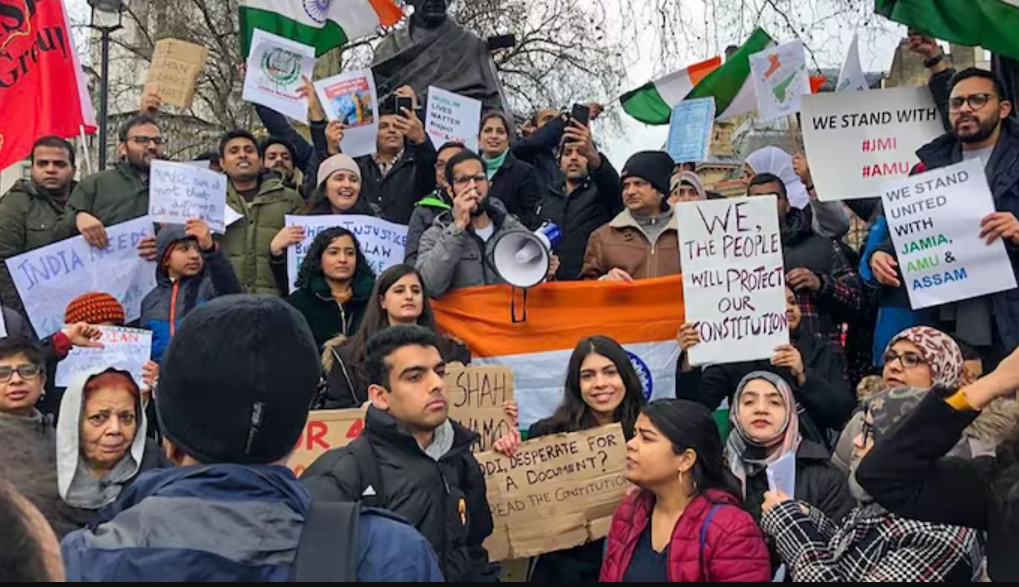
V-Dem’s approach to comprehensively analysing democracy and democratisation entails certain core principles, namely electoral, liberal, majoritarian, consensual, participatory, deliberative, and egalitarian. Each of these core principles is measured by their separate indices. These indices encompass factors like free and unbiased elections, civil liberties, independence of the judiciary, gender equality, and freedom of the press among others.
The V-Dem report of 2024 finds that there has been a recent upsurge in autocratisation. Nearly thirty-five percent of the world’s population lives in steadily autocratising nations and India accounts for more than half of this population.
Democracy in India, or the Lack Thereof
V-Dem has found a decline in democracy throughout the world and India accounts for a lot of this decline. V-Dem banks upon a population-weighted analysis of democratisation and autocratisation and India being the largest democracy in the world has a substantial role in shaping these trends. Even without a population-weighted analysis, India does not seem to fare well.
The report cites various reasons for the ongoing wave of autocratisation in the country and an analysis of India’s deteriorating commitment to democracy forms a significant part of the report. Among the reasons cited are the curbing of the freedom of expression, stifling the media, and intimidation of the opposition.
India has a Liberal Democracy Index of 0.28, an Electoral Democracy Index of 0.38, a Liberal Component Index of 0.62, a Participatory Component Index of 0.51, and a Deliberative Component Index of 0.61. It falls significantly short of the average on all these measures.
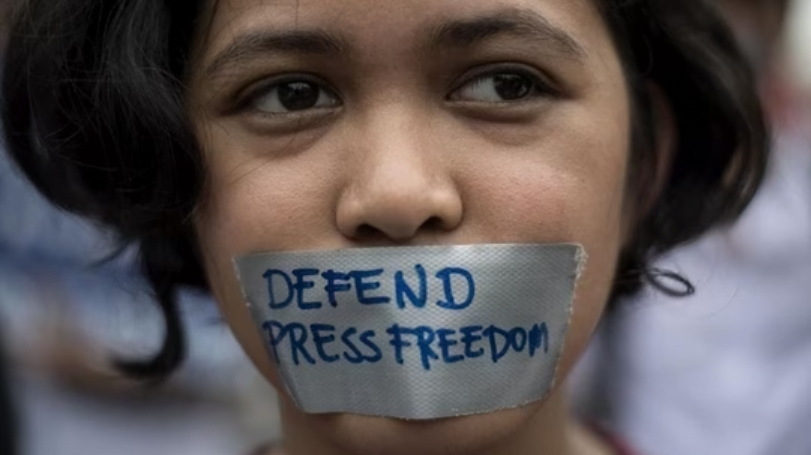
The report cites various reasons for the ongoing wave of autocratisation in the country and an analysis of India’s deteriorating commitment to democracy forms a significant part of the report. Among the reasons cited are the curbing of the freedom of expression, stifling the media, and intimidation of the opposition.
In the last few years, the Indian government has been responsible for silencing the media and activists, for abusing sedition laws, and for upholding draconian laws such as sedition and the UAPA among others, for covertly passing bills in the parliament in the absence of the opposition, for attacking and injuring people partaking in peaceful protests, for being unavailable to answer questions or concerns regarding any juridical decisions taken by the government, for dubious electoral bond schemes, for cutting off internet and telephone connections, for suspending MPs from the opposition, and for fostering religious divide with its preoccupation with sectarian politics. In a manner that is fitting for most autocratic governments, it is constantly attempting to rewrite and erase history to suit its narratives.
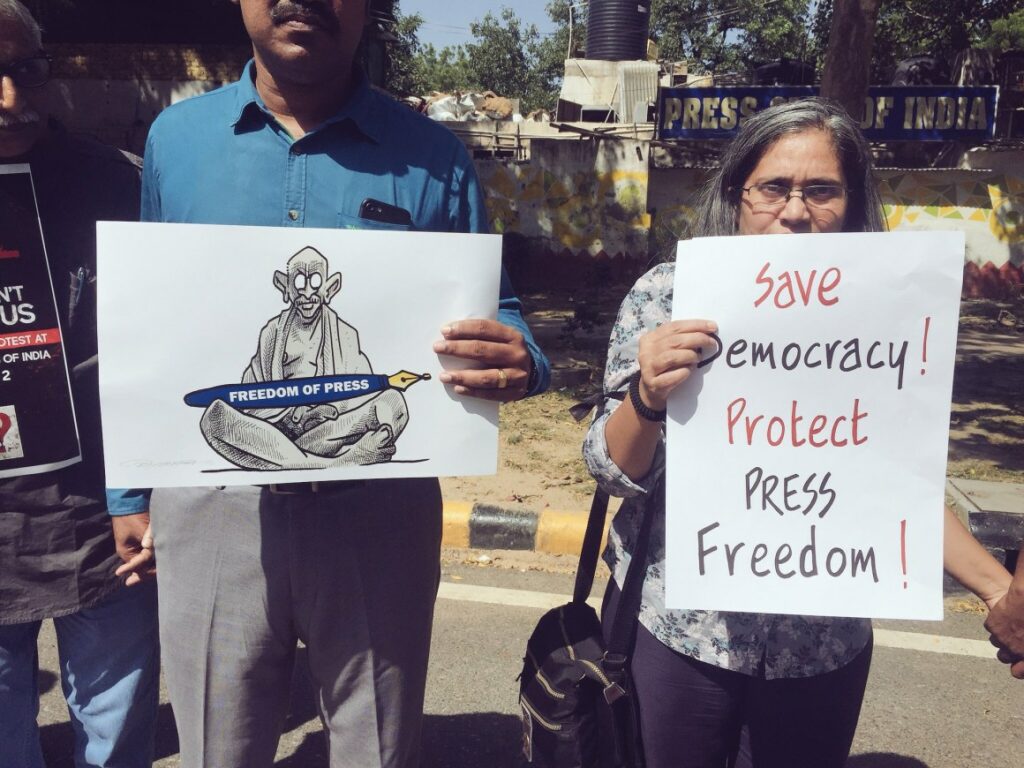
Moreover, it has alienated religious minorities and farmers, upheld problematic laws and hence enabled marital rape and disallowed marriage equality and cracked down on most anyone expressing dissent – everyone from activists to comedians has been on the receiving end of the government’s wrath, so much so that euphemisms have come up to enable references to people in positions of power.
What does V-Dem say
The V-Dem report states:
“In India, Prime Minister Modi and his Bharatiya Janata Party (BJP) is expected to win a third consecutive term. This could lead to further autocratization given the already substantial democratic decline under Modi’s leadership and the enduring crackdown on minority rights and civil society.”
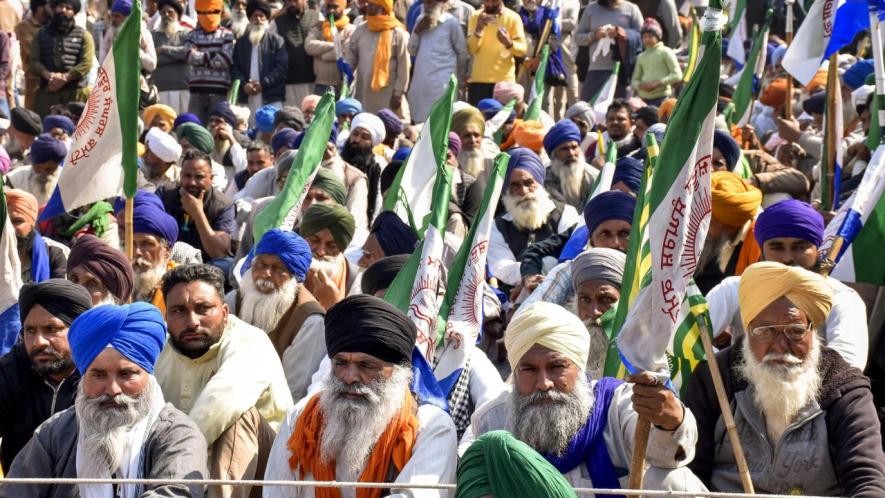
The world currently has its eyes set on India and never before has it been of the utmost importance that the nation should rise from the ashes of an aspiring democracy that is now crashing and burning. India became an electoral autocracy in 2018 and has remained in that category since then according to the V-Dem report. The trajectory that India has taken since the initiation of the BJP regime in 2014 has been concerning, to say the least. The observations made by the V-Dem report are a shameful reminder of the very same fact.
Indeed, parts of India are now in an undeclared emergency and it has been hard to get the people in positions of authority to talk about them. There has been a tendency to dismiss the concerns of the populace in favour of the privileged few who hold all the power in the nation.
The state has tried to dictate how people dress, what people eat, and whom they love, all while claiming that it has done so for the greater good. The shift from being the largest democracy in the world to the largest autocracy is imminent and the 2024 elections are going to be pivotal in determining the future of the democratic spirit of the country.
About the author(s)
Adrita Bhattacharya is a Computer Science graduate from Vellore Institute of Technology and is currently pursuing a degree in English and Cultural Studies at Christ University. She has a keen interest in Linguistics, Gender Studies, and Digital Humanities.
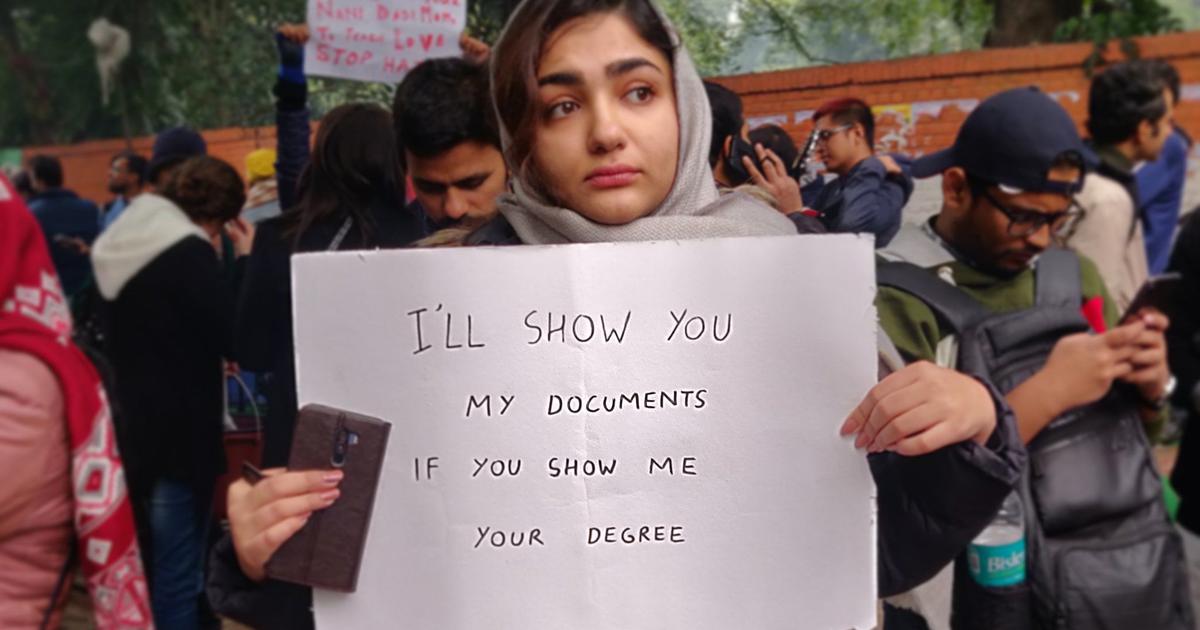





I am an indian enjoying democracy. And your report is not correct and biased. This is country where even PM of the country was called names, waylaid in Punjab but no action was taken against the culprits. That much freedom we enjoy. Don’t use Swedish scale to measure us